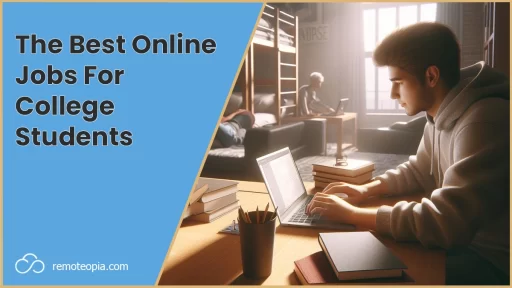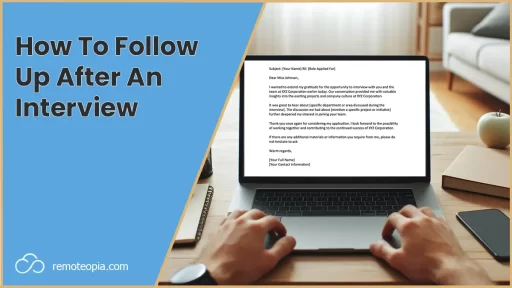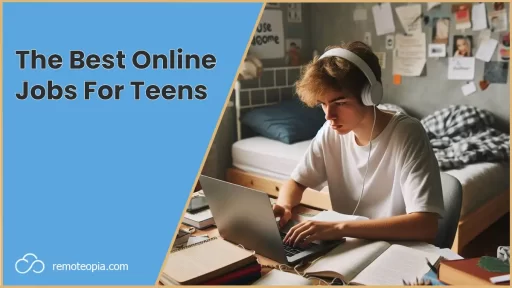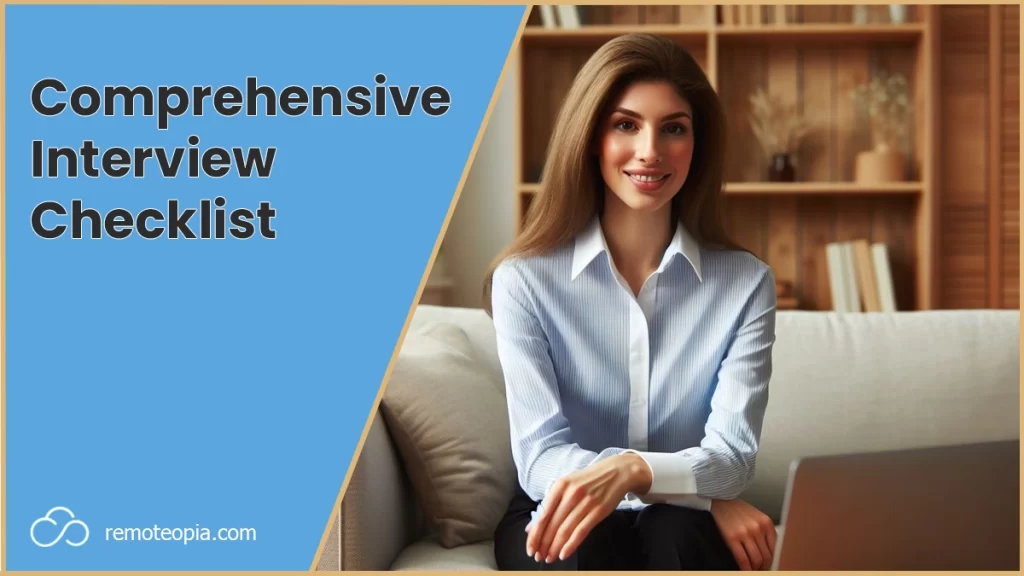
Pre-Interview Preparation
Start off by doing some research on the company. What are their values and mission statement? What is the culture of the company?
Look on the company website, this information is commonly found under the ‘About Us’ section and it’ll help prepare you for potential questions as well as understand if their ambitions and culture align with your own.
💡 Top Tip – Google the company name and hit the ‘news’ tab. This will give you the latest news on the company. This can be a great way to get additional information and show that you’re well researched and up to date on their latest big moves.
Look through the job description again and highlight anything that’s mentioned that aligns well with your experience so that you can match the two up with an example in the interview.
Consider also any areas where you might not be so strong and think about how you could address and absolve any concerns they might have about your alignment to those areas.
Check one last time for accuracy and consistency on your resume. Cross reference it against the job spec to make sure you’ve got the points you want to emphasise where your experience and skills are a good match memorized/jotted down
💡 Top Tip – Always share your resume in .pdf format, not Word. As well as being more secure, this helps make sure none of the formatting breaks whilst .pfd is also more accessible across different devices.
For some roles, such as design, a portfolio is integral to share your work and its merits.
Even if you don’t have a portfolio, make a list of your top 5 achievements that are relevant to the position you’re applying for. Include a good amount of variation in the accomplishments you list so that you have examples for differing questions that might arise.
There are some questions that come up often in interviews as they give the interviewer a good indication as to the candidate’s fit.
Behavioral/company culture and strength and weakness questions along with, give me an example type questions are worth preparing for. Even more informal questions, like tell me a fun fact about yourself, can come up and be worth practicing for.
Here are some common interview questions worth considering:
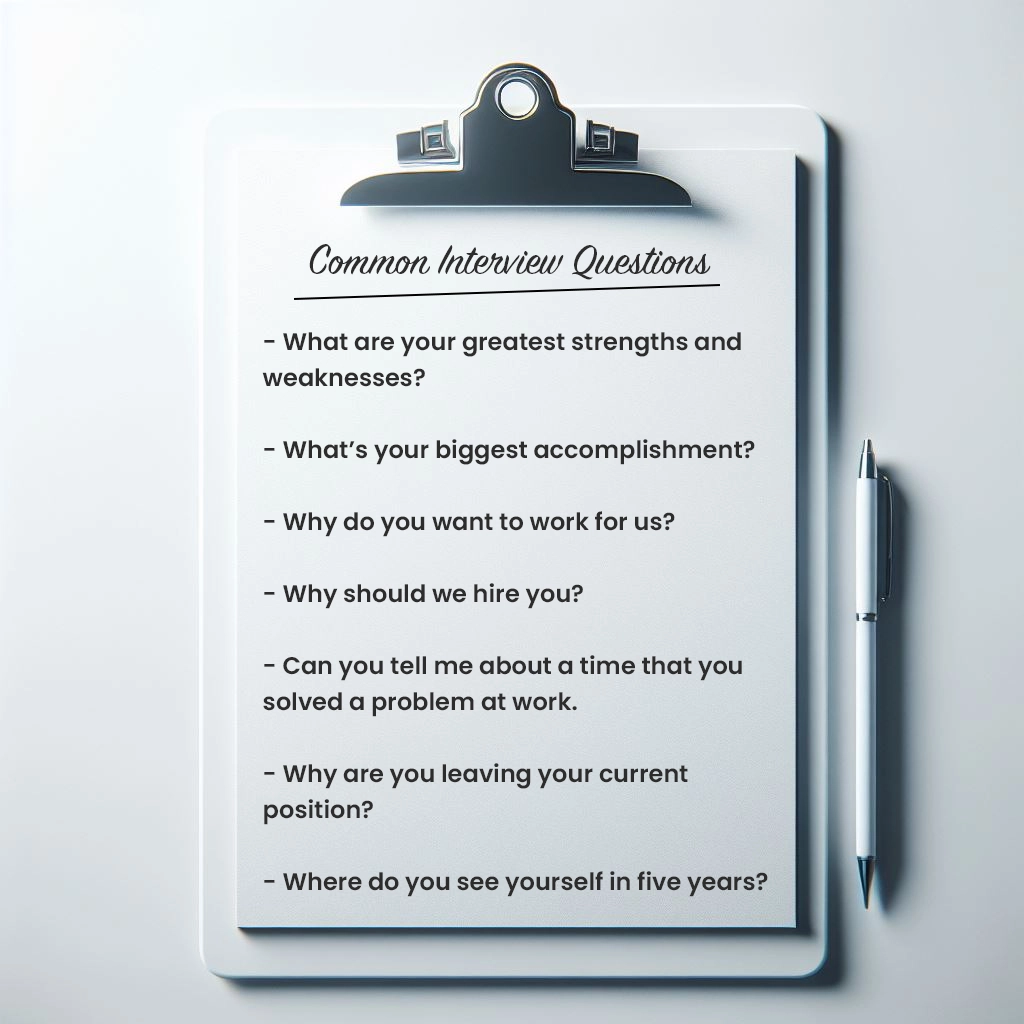
Having a good list of interview questions prepared can really make you stand out.
I love it when candidates ask good questions about the business and that shows that they’ve understood how the role relates to its success and goals.
This article on The Best Questions To Ask At The End Of An Interview will give you some ideas.
At this stage it could be worth running a mock interview with a friend or family member. These can be a great way to prepare your answers and assess where you might be able to improve. Remember the 6Ps – Prior Proper Preparation Prevents Poor Performance.
Address appropriately for the interview. A good way to understand this is by looking at the company website and social media channels to see how staff members dress.
As a rule of thumb, it’s always better to be overdressed (more formal), than under (more casual).
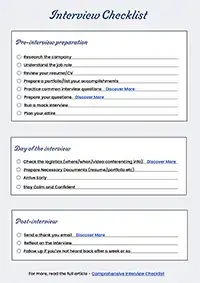
Interview Preparation Checklist
Download this free interview checklist to keep you on track
Day Of The Interview
Make sure you double check the day and time of your interview to make sure you’re 100% on the crucial details.
If it’s a virtual interview, make sure you have the required software on your machine and check all of the interview details in relation to joining the call. This Guide To Video Conferencing has some pointers.
Check out these Must Know Zoom Interview Tips too that are applicable to most platforms.
Make sure you have a copy of your resume to hand, either paper or digital – it will help to have an immediate reference.
If relevant, work from your portfolio could also be useful to have ready, along with somewhere to take notes and a copy of any requested references.
💡 Top Tip – Take written notes rather than digital. Digital notes can mean having to constantly go on and off of must to avoid a typing sound over the conversation.
Arriving early enables you to make sure you’ve got the right place if it’s face to face and get to the right person on time. For virtual interviews, it gives you the chance to test your technology and orientate yourself if it’s a video conferencing tool you haven’t used before.
If you feel nervous, try to relax with deep breathing exercises beforehand.
Remember to smile and keep a good posture throughout to show that you’re attentive.
During The Interview
Stay Calm and Confident. Don’t overcomplicate your first interaction, keep things simple.
Greet the interviewer with a smile (or handshake in person) and maintain eye contact.
Thank them for the opportunity and be prepared for some small talk at the beginning.
Pay attention to the questions that are asked and give yourself time to think when answering, taking time to formulate insightful responses.
I rarely see interviewees do this, but it’s ok to check your notes! It shows that you’re considering your answer and that you prepared for it – these are both good indications.
When you’re talking through your abilities and accomplishments, try to add in examples where possible and relate them to the requirements of the job.
To achieve this, try to remember to use the STAR (Situation, Task, Action, Result) method when answering.
Here’s an example:
Question: Can you provide an example of a challenging situation you faced in your previous job, and how you handled it?
Answer:
- Situation: As a project manager, we encountered supply chain disruptions while launching a new product.
- Task: I had to find alternative solutions to meet the tight deadline.
- Action: I convened stakeholders, researched new suppliers, and streamlined processes.
- Result: We secured new suppliers, adapted workflows, and delivered on time.
Use both your prepared questions from earlier at the end of the interview or when they are appropriate.
If there are questions that you think of in the middle of the interview that you didn’t prepare, ask them! You want to show intrigue, but also gather as much information as possible to understand if this is the right job for you.
Post-Interview
A well timed follow up email after your interview can help you stand out and keep your application at the forefront of the interviewer’s mind.
Express your gratitude for the opportunity and their time. Reiterate your interest in the position and highlight why you’re a good fit for the role.
Send this email 24-48 hours after the interview.
It’s always a good idea to take stock of what went well and what could be improved from your interview. Taking the time to reflect will help you become better and hone your skills for future opportunities.
Good luck!

James Waite
Founder of Remoteopia, James has worked in remote roles for 6 years. After a stint in recruitment, he now works as a director of website strategy in tech.


